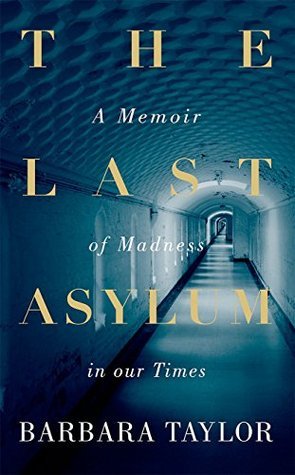What do you think?
Rate this book


In July 1988, Canadian-born historian Barbara Taylor was admitted to Friern Hospital, a once-notorious asylum for the insane. Her journey there began when, overwhelmed by anxiety as she completed her doctoral studies in London, England, she found relief by dosing herself with alcohol and tranquillizers. She then embarked on what would turn out to be a decades- long psychoanalysis.
The analysis dredged up acutely painful memories of an unhappy and confusing childhood back in Saskatoon. As Taylor struggled to cope with these, she would twice be re-admitted to Friern. She took refuge in day-care institutions and a psychiatric hostel, all the while continuing her therapy, which eventually put her on the road to recovery.
This searingly honest, beautifully written memoir is the narrative of the author’s madness years, set inside the wider story of our treatment of psychiatric illness: from the great age of asylums to the current era of community care, ‘Big Pharma’, and quick fixes. It is a meditation on her own experience as well as that of millions of others – both in Europe and in North America – who have suffered, are suffering, and will suffer from mental illness.
320 pages, Kindle Edition
First published April 1, 2014
I'm in the bin, you bastard! So what are we going to do now?
Psychoanalysis? That's what you come here for, isn't it? Or maybe it isn't? Maybe you just come here to punish me?
Punish you? For what??
You just said. You're in a mental hospital. And this is somehow my fault.
Yes!
Yes what?
Oh...oh...I don't know...! Fault, whose fault?...I don't know?...[Angry silence]What if I can't come here any more? What if they lock the door and won't let me out?
Has anyone tried to do that?
Well, no...But they could! And then what? Would you come to me?
No.
Never??
No, never.
So! You bastard! You drive me crazy, I end up in hospital, maybe locked up in there, and you won't come and see me?!
I haven't 'driven you crazy'. And I'm not going to come to Friern to see you, not ever. I'm not going to give you more reasons for staying in hospital.
Huh! You don't care what happens to me!
In Britain it is estimated that over 70 per cent of the prison population have two or more mental disorders; similar estimates are made for the Canadian prison system. In the United States right now, the three biggest mental health providers are prisons.
Decades of intensive research, much of it funded by drug companies, have thus far produced no persuasive evidence for the neurobiological origin for any mental illness.
The mental health system I entered in the 1980s was deeply flawed, but at least it recognized needs – for ongoing care, for asylum, for someone to rely upon when self-reliance is no option – that the present system pretends do not exist, offering in their stead individualistic pieties and self-help prescriptions that are a mockery of people's sufferings. The story of the Asylum Age is not a happy one. But if the death of the asylum means the demise of effective and humane mental health care, then this will be more than a bad ending to the story: it will be a tragedy.